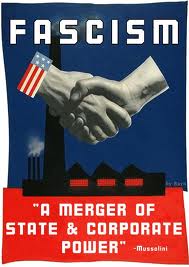Trump signs E.O. to cut regulations, and Treasury Sec. Steve Muchin and Fed Reserve Chairman Jerome Powell head to Senate.
Trump signs E.O. (executive order) giving federal agencies ‘tremendous power’ to cut regulations.
On Tuesday, President Trump signed an executive order intended to speed economic recovery by cutting unnecessary regulations.
During a Tuesday Cabinet meeting, Trump signed an executive order instructing federal agencies to slash all “unnecessary regulations that impede economic recovery.”
According to the White House, the executive order will direct federal agencies to identify regulations that can be temporarily waived to promote economic growth.
The order then asks the agencies to determine whether any of the hundreds of regulations that were previously suspended due to Coronavirus could be suspended permanently.
Trump said, “I’m directing agencies to review the hundreds of regulations we’ve already suspended in response to the virus and make these suspensions permanent where possible.”
President Trump signs Executive Order giving Cabinet members authority to cut regulations.
Full video here: https://t.co/1NXrzbhqNL pic.twitter.com/P6j6ikzavC
— CSPAN (@cspan) May 19, 2020
Moments before Trump signed the order, he addressed U.S. Secretary of Transportation Elaine Chao directly. He said, “Elaine, you can do things that nobody would believe in your department, Department of Transportation. So good luck. I’m signing this, it gives you tremendous power to cut regulations.”
Fox News reports that more than 600 regulations are up for review under the executive order.
“We’re fighting for the livelihoods of American workers, and we must continue to cut through every piece of red tape that stands in our way.” pic.twitter.com/pmisSDtJTb
— The White House (@WhiteHouse) May 19, 2020
“If a bureaucratic rule needs to be suspended during a time of crisis to help the American people, we should ask ourselves if it makes sense to keep it at all,” said Acting Office of Management and Budget Director Russ Vought explained.
The Federal Motor Carrier Safety Administration (FMCSA) suspended Hours of Service (HOS) regulations for truckers hauling certain supplies in all fifty states shortly after Trump declared the Coronavirus to be a national emergency in March. The HOS waiver has been extended twice and is now valid through June 14, 2020.
This is not the first time that Trump has signed an executive order aimed at deregulation. In January 2017, he signed an executive order requiring lawmakers to eliminate two regulations for every new regulation enacted by federal agencies.
Treasury Sec. Steve Mnuchin and Fed Reserve Chairman Jerome Powell head to Senate
The heads of the U.S. Treasury and Federal Reserve testified in a virtual Senate hearing Tuesday about the state of the economy amid the coronavirus crisis and the status of relief funds Congress approved in March.
It was the first quarterly report on how they have distributed trillions of dollars.
“We have had to take unprecedented steps to shut down significant parts of our economy in the interest of public health,” Treasury Secretary Steven Mnuchin told the Senate Banking Committee.
In response, lawmakers have approved unprecedented amounts of spending to help those struggling during stay-at-home orders, mainly the $2 trillion CARES Act.
“While we are all affected, the burden has fallen most heavily on those least able to bear it,” said Federal Reserve Chairman Jerome Powell.
The legislation created a $500 billion loan program for businesses, airlines, and state and local governments, but a new report from the Congressional Oversight Commission found so far that money is barely being used.
Sen. Tom Cotton, R-AR, wanted to make sure companies in the corporate bond business have access to the funds.
“Any thoughts on when that decision might be made so some of these companies can get the certainty on whether they’ll have access to that facility, another facility or perhaps a new facility?,” Cotton asked.
“We want to make sure that if there are companies that slip through these two facilities [Primary and Secondary Market Corporate Credit Facilities], the chair and I will work together to make sure that we deal with those issues so they have funding,” said Mnuchin.
Sen. John Kennedy, R-LA, asked about the timeline for state and local government funding: “Is your municipal liquidity facility set up?”
“Yes, it is,” Powell said. “Well, we’re probably two weeks away from it being operational.”
Senators also took the opportunity to get the leaders on the record about pending legislation.
Kennedy’s bill would allow state and local governments to use the $150 billion Congress has already appropriated not just for coronavirus relief but also for operating expenses.
“If there’s bipartisan support for that, I’m sure the president and I would look forward to that,” Mnuchin said.
A bill Sen. Doug Jones, D-AL, plans to introduce this week would help business owners keep their employees on the payroll with benefits.
“While we don’t want to give folks incentives to stay on unemployment, we certainly do want to give incentives to businesses to open carefully,” Jones said.
“I’ll be happy to take a look at your proposed legislation,” Powell said.
Both leaders are expected to return and report again next quarter.
In Conclusion
We Are Now Entering A New Phase: “BEYOND BEYOND



